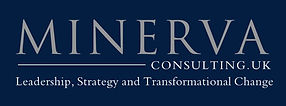
Strategy Development, Review and Decision Making Workshops
How meaningful is your strategic plan to your people, how adaptable is it, and how emotionally engaged are people?
A rapidly changing, uncertain, complex and unforgiving environment focuses leaders’ attention on robust, rigorous yet
agile decision-making and planning practices in order to set direction, exploit innovation and customer insights, clarify
priorities, and harness discretionary effort and creativity.
Strategy articulates a decision to complete an organizational-level task, or achieve a defined future-state and objectives, together with the purpose for doing that (which gives meaning to people). Strategy provides coherence between actual capability, external context and strategic objectives, and outlines how those strategic objectives will be achieved. It provides a rationale and framework for operational and tactical actions.

In a VUCA world, strategy may be emergent requiring a series of planned experimental and development 'sprints', articulation of causal chains, increased sensing of 'indicators', and increased risk taking (which many leaders will be uncomfrotable with).
An effective strategy development and decision-making practice will minimise the distorting effects of personality, perception, false assumptions, group-think and pre-conceived ideas. It will increase collaborative dialogue, enquiry and the use of evidence; 'social process' will secure engagement and commitment. It will clarify priorities, align thinking and activity to 'higher intent', and define work to stop, start or continue. It will evolve strategy in the light of actual progress and changing context to deliver competitive advantage, increased productivity, and reduced effort and resource expenditure.
We will introduce you to a simple but robust, iterative and highly flexible leadership practice which delivers the outcomes described above; and build your leaders' confidence and understanding so that its use becomes routine. Our approach is not to tell, but to guide you through a time-efficient, dynamic, engaging, collaborative mission-focused dialogue based on answering 'the big 5 questions'. We call this leadership practice ‘The Appreciation’ —we appreciate the situation; ineffective decision-making situates the Appreciation to justify a pre-conceived idea.
The Appreciation develops “Understanding” by combining insight (situational awareness and analysis) and foresight (questioning, critical thinking and judgment).
An Appreciation wins both the hearts and minds of those involved by asking searching questions to clarify thinking while the 'social process' of facilitated dialogue and involvement secures engagement, harnesses expertise and creativity and builds team unity. The quality of the dialogue sparked by the questions invariably lifts participants' level of thinking and deepens their understanding of the business, the implications of proposals and the issues faced by colleagues and their teams. The resulting ‘clarity and commitment’ builds mutual confidence and trust.
When applied to decisons and plans at lower levels, the same iterating mission-focused decision-making 'practice' makes strategy ‘meaningful’, aligns activity to 'higher intent', helps to integrate the leadership structure and builds systemic trust.
Outcomes of a facilitated Appreciation include:
-
A clear, simple one page schematic plan with tasks and activities prioritised and sequenced on lines of activity which may be adapted to reflect progress and context changes
-
A means of assessing all ‘new’ and ‘current’ activity in terms of start, stop and continue; in-source and out-source
-
A balanced scorecard derived from the plan containing both leading indicators and final measures of success
-
A common leadership practice to make effective decisions
-
Full participant engagement and commitment
-
Faster and more effective communication of decisions, plans and their rationale in meaningful terms
“The Appreciation process is probably the most valuable business lesson I have learnt in the last 5 years, it has significantly improved the performance of myself and my team by doing the thinking up front and implementing a Course of Action that needs little or no re-engineering. I highly recommend that every manager takes the opportunity to learn the process, use it every day for problems big and small, and experience the motivating effect of making the right decision every time”
Mawgan Wilkins, Director Global Product Services, Cisco EMEA.
Let's talk about strategy development and simplification, emergent strategy, decision making in different contexts; and the power of facilitated and structured leadership team decision and planning workshops.